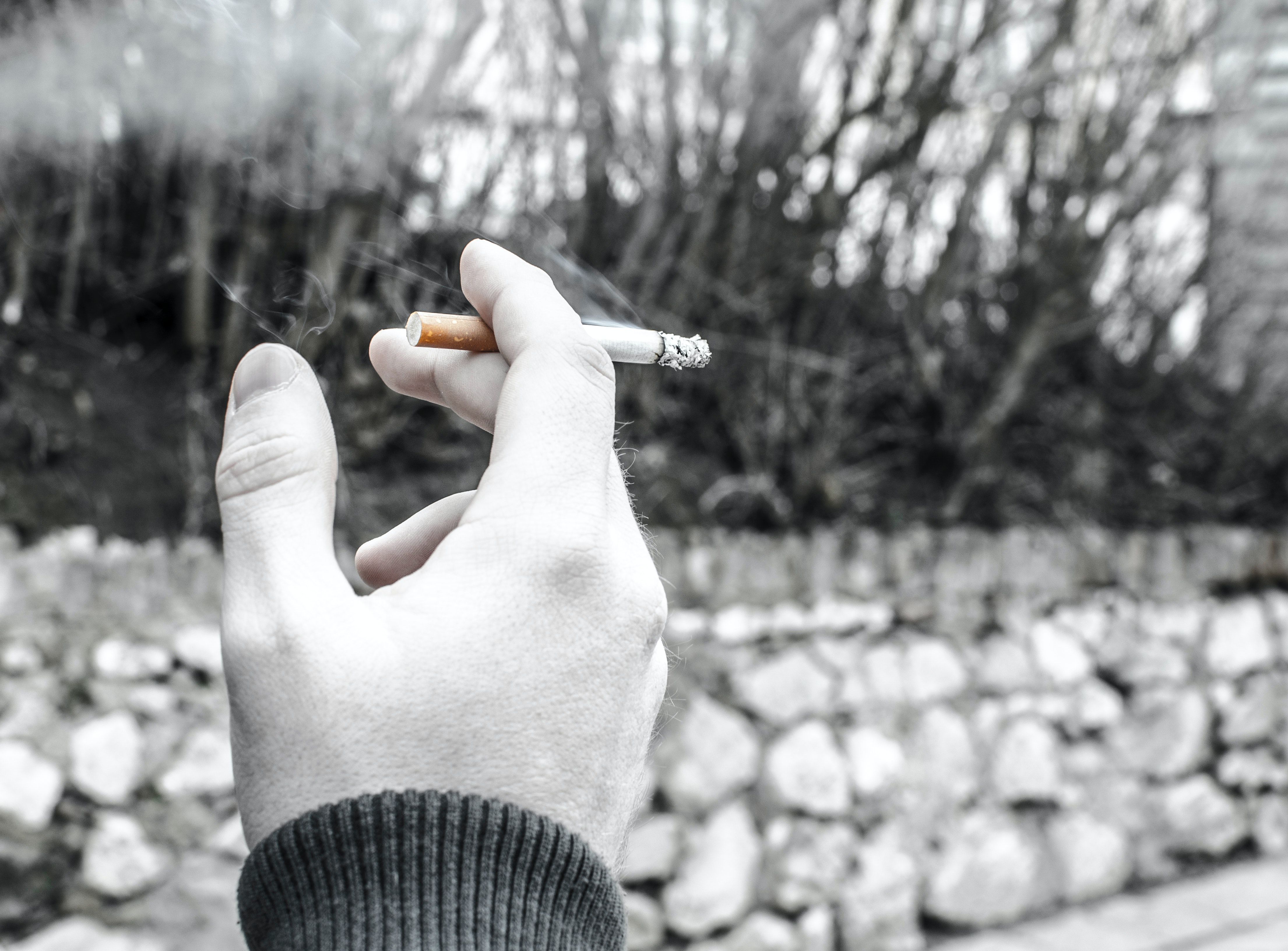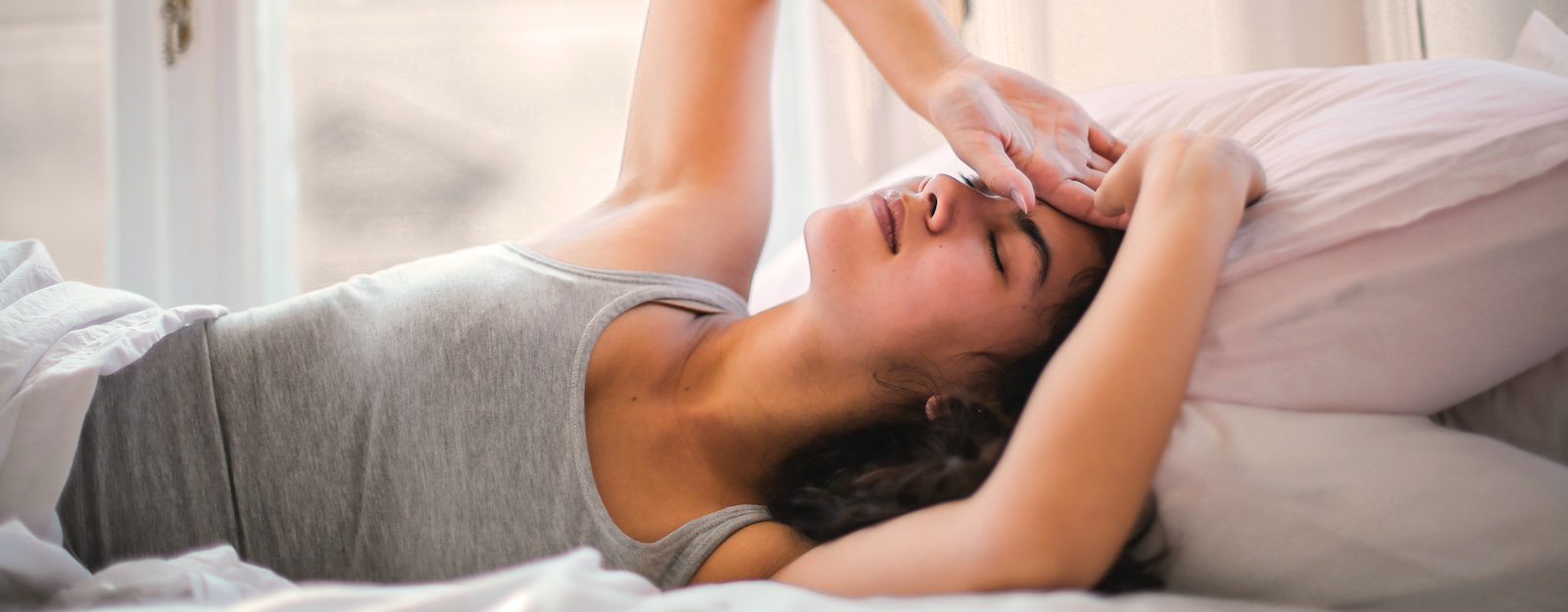You may feel drowsy after a glass of wine or more relaxed after smoking, but the true effect of these substances on your sleep can be deceiving. While alcohol, nicotine, or cannabis may help you fall asleep, they can have varying impacts on the quality of your sleep. Due to their sedative effects, various substances can change the amount of time you spend in each sleep stage. This can prevent you from completing enough time in each stage, all of which are crucial for recovery purposes. That’s key, because after a night of quality sleep, you can start your day with the rest you need to feel energized, motivated, and productive, which can improve your ability to make positive health decisions throughout the day. Let’s dive deeper into how each of these substances can impact your sleep.
Alcohol
A “nightcap” may seem like an ideal way to end your day, but alcohol actually does more harm than good. In the past, alcohol was often used as a remedy for insomnia because it’s a depressant. In fact, about 10% of the population still uses alcohol as a sleep aid. Initially, alcohol does trigger a drowsing effect, but it doesn’t continue throughout your sleep cycle. Recent research shows that alcohol negatively affects sleep quality, specifically REM sleep. And like most substances, alcohol can alter your brain activity, which also negatively impacts sleep.
If you drink alcohol close to bedtime, your blood alcohol level rises. Depending on how close your last drink is to the time you fall asleep, your blood alcohol may continue to rise while you sleep. Studies show that just one or two drinks can impact sleep quality and the amount you consume determines which sleep stage is affected. In order to prevent alcohol from interfering with sleep quality, your body needs time to metabolize the alcohol and lower your blood alcohol level before you go to bed.
Research shows that the relationship between alcohol and sleep is a two-way street. Alcohol abuse can cause sleep disturbances and using alcohol as a sleep remedy can lead to problematic alcohol and/or other drug use, specifically for adolescents. Regular alcohol consumption and alcohol dependence have been linked to many sleep problems. And because becoming sober can initially worsen sleep issues, relapses due to a lack of sleep can occur.
One condition in particular that alcohol can cause or aggravate is obstructive sleep apnea (OSA) due to alcohol’s weakening effect on muscles in the throat that are used to breathe. Alcohol can negatively impact the quality of air taken in while sleeping, but this is particularly true for people with OSA or those who snore. Severe OSA not only impacts sleep quality but can also lead to heart disease.
Alcohol is also high in calories. Excess calories from heavy drinking can lead to a higher body mass index (BMI), which is also a risk factor for OSA. In fact, 41% of people with a BMI over 28 were found to have OSA. In addition to OSA, research suggests that occasional alcohol consumption may lead to nightmares and can worsen restless leg syndrome. Consistent nighttime alcohol use can also lead to insomnia and constant waking.
In summary, alcohol has a negative impact on sleep quality and can put you at risk for sleep conditions. At Love.Life we recommend stopping moderate alcohol consumption (1-2 standard drinks maximum per day) at least three hours before bed. If you have trouble falling asleep, you may want to consider avoiding alcohol within 8-10 hours of sleep.

Nicotine
If you feel anxious before bed, reaching for a cigarette may seem like an easy and instant way to relieve stress. However, nicotine is not a long-term stress solution and research shows that it does not support sleep, particularly since nicotine is a stimulant.
Smokers have reported issues with falling asleep, frequent awakenings, daytime drowsiness, and more. In fact, smokers are two times as likely to experience such struggles. Many smokers also experience cravings at night, which causes them to wake up. Fortunately, poor sleep symptoms tied to smoking appear to reverse after quitting.
Similar to alcohol, regular smokers who quit may go through an initial period of withdrawal, which worsens sleep issues and increases the risk of relapse. Research shows that nicotine replacement devices may aid with this transition period. Many smokers who quit experience daytime drowsiness during the nicotine withdrawal period, but this is likely to fade after about 20 days.
OSA and restless leg syndrome are also both associated with nicotine intake. And sleep apnea was found to be 40 times more likely in smokers according to one study. Due to its negative impact on sleep and many other health concerns, Love.Life does not recommend nicotine use of any kind.

Cannabis
Cannabis is commonly used to help with insomnia. One survey found that out of 1,000 adults who use cannabis, 74% use it for sleep. Research involving cannabis and sleep has yielded mixed results.
Cannabis may potentially aid in falling asleep, decrease nighttime awakenings, and increase sleep time short term. On the other hand, cannabis can affect how much time is spent in each sleep phase or impact circadian rhythms, and the long-term effects are not well known. Studies have also shown small risks associated with cannabis and cannabinoid use, such as nausea, dizziness, dry mouth, and fatigue or drowsiness.
When conducting research on cannabis, most studies focus on the phytocannabinoids of delta-9 tetrahydrocannabinol (THC), which produces an intoxicating effect, and cannabidiol (CBD), which does not cause an intoxicating effect.
Research suggests that CBD in low doses may cause wakefulness, but in medium and high doses may increase sleep quality. Meanwhile, THC could potentially aid in helping people fall asleep, but create negative effects on sleep long-term. Some studies suggest potential benefits for sleep when a low amount of THC is paired with a higher amount of CBD. Others found negative results and suggest that tolerance is developed to THC with long-term use, which decreases its potential positive impacts. Preliminary research has shown that cannabis use may be beneficial for OSA, frequent nightmares, or poor sleep related to chronic pain, but more studies are needed.
Like alcohol and nicotine, frequent cannabis users who quit may experience sleep difficulties, which can lead to relapse. This is important to know when quitting any of these substances, so other methods can be used to improve cessation success and prevent relapses.
Thus far, there is no definitive research regarding cannabis use and sleep. Studies are mixed regarding CBD versus THC, long-term use versus short-term use, and high dose versus low dose effects. Cannabis may aid in falling asleep and lengthen some phases of sleep while shortening others. Here at Love.Life we can help you address sleep issues and provide personalized solutions to improve your sleep quality. Contact us to learn more.

